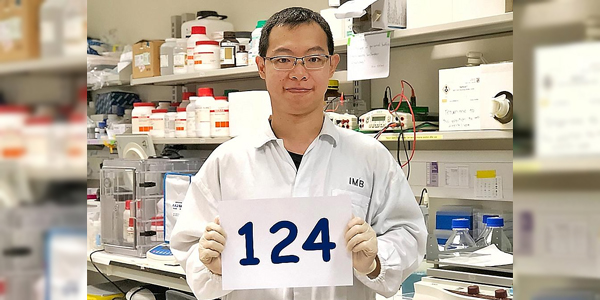From EM3 to PhD: A*Star researcher scored 124 for PSLE
Published on 19 Nov 2018 | By Jolene Ang | Source: Straits Times © Singapore Press Holdings Limited. Permission required for reproduction.

While he may be a research fellow now- Dr Vincent Lim's journey to obtaining his PhD was anything but predictable.
He started as an EM3 pupil in primary school- a stream for academically weaker pupils that was scrapped in 2008. With a Primary School Leaving Examination (PSLE) score of 124- he made it only to the Normal (Academic) stream in secondary school.
But Dr Lim- now 33- started to shine as a polytechnic student and later graduated with first class honours from Nanyang Technological University (NTU)- where he read biology. Unsurprisingly- he is an advocate for not giving up on weaker students.
"Aside from the practical intentions of grades and certificates being a way to enter or build a workforce... one more primary function of the education system is to give our children a sense of hope-" he said. "Education should leave them feeling hopeful- and not hopeless."
He knows the feeling of being overwhelmed - as a first-year polytechnic student- he could not help but compare himself with his peers.
"After my first semester results- I realised the limits of my abilities as I started to encounter peers that were more capable than me-" said Dr Lim- who studied biotechnology at Singapore Polytechnic.
"I remember lying sleepless for a few nights thinking as though I had lost my identity. It took me a while to accept that fact (limits of his abilities) and to use hard work to overcome my limitations."
Now a research fellow at the Agency for Science- Technology and Research's (A*Star) Institute of Medical Biology- Dr Lim has come a long way since his days as a quiet pupil.
He spent the first three years at Jin Tai Primary School- which has since closed down- and three years at Chua Chu Kang Primary School.
"I am very introverted by nature- and big noisy classes were the last place I wanted to be-" said Dr Lim.
But even in primary school- he knew he had a penchant for the sciences. "There were people around me who helped me discover that it is interesting and that I don't have to be afraid to be curious-" he said.
"As a child- I think I saw reading about science as a way to make sense of what seemed like a scary world around me."
As the PSLE approached- he studied hard - not because he wanted to score well- but because he had discovered a new interest.
Said Dr Lim: "Once the momentum was there- it was a matter of maintaining my interest."
At Kranji Secondary School- he started to improve academically. And a classmate declared that he would beat him at mathematics. "I didn't think about it and just went on with my life- but a year later he came back to me and said sheepishly that I had 'won'. I felt surprised back then by his behaviour.
"But thinking back- I think the lesson here is that his objective then was to overcome me- which was a stationary target to him. I was aiming to overcome myself- which is a perpetually moving target."
After NTU- he obtained his PhD in Medicine (Research) from Dundee University in Scotland.
Dr Lim believes weaker students tend to have lower self-esteem- which means they care a lot about what others think of them. "Everyone is fighting a battle you cannot see. So always be kind-" he said.
To the students struggling academically- he said: "Despite the situation you are in- there are always ways to go on. Don't give up on yourself- and you will find a way."
A*STAR celebrates International Women's Day

From groundbreaking discoveries to cutting-edge research, our researchers are empowering the next generation of female science, technology, engineering and mathematics (STEM) leaders.
Get inspired by our #WomeninSTEM
